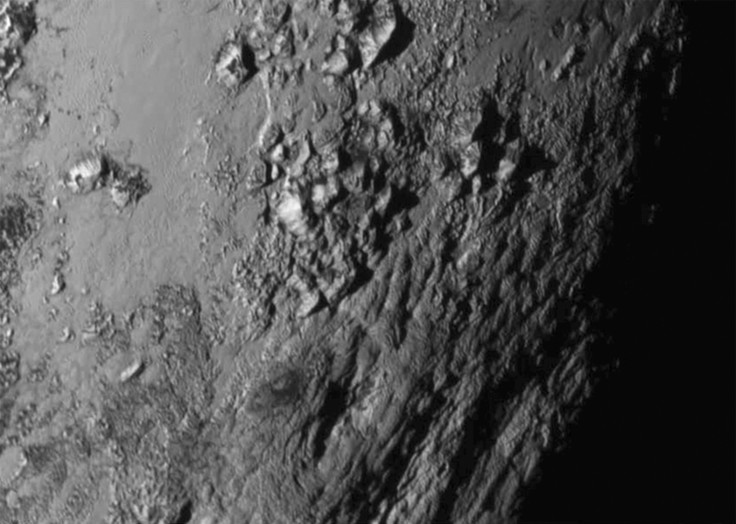Scientists say the 'world is alive' in Pluto
Pluto has blue skies as well as exposed red water ice, shows New Horizon image.

NASA revealed on Thursday its "amazing" discovery (Friday in Australia). While speaking at the University of Alberta in Canada, Alan Stern, a planetary scientist and principal investigator on Nasa's New Horizons Pluto mission, made the exciting announcement.
The Morning Bulletin.com reported that Pluto has blue skies as well as exposed red water ice. The images came from the first spacecraft ever sent to the dwarf planet which continues to send data from the edge of the solar system. "This world is alive," Stern said.
Last week, coloured images of Pluto’s atmospheric hazes were sent to Earth when Nasa’s New Horizon spacecraft swept past Pluto in July 2015. It revealed, when Sunlight reaches the planet, the mysterious mix of particles scatter blue light. “Who would have expected a blue sky in the Kuiper belt? It’s gorgeous,” said Stern. New Horizons is now all set to venture farther into the Kuiper belt, a region of dwarf planets as well as ancient debris that rings the solar system’s farthest edge.
The haze seen in the image of Pluto consists of particles called tholins - unusual, solid molecules that are at times compared to tar or soot due to the way it react as well as recombine with other molecules.
The researchers believe that the tholins are formed high above the surface where the sunlight ionises the methane and nitrogen that makes up most of the dwarf planet’s atmosphere. On Monday, Stern told the University of Alberta, “All those haze layers are actual layers in Pluto’s atmosphere stretching up literally more than 100 miles.”
The molecules, each of it are likely to be red or grey that condenses and falls down to the planet’s surface, gathers ice frost on the descent and eventually adding to the world’s reddish tint, reported The Guardian.
NASA has had a series of big discoveries in 2015 - from flowing water on Mars to the identification of 'Earth 2.0' - Kepler 452b, the most Earth-like planet ever discovered. Stern said in a statement, "2015 will be a year in textbooks forever," as this is the year in which mankind found out so much about its solar system.
Contact the writer at feedback@ibtimes.com.au, or let us know what you think below.





















